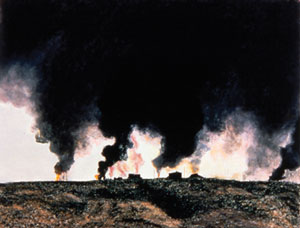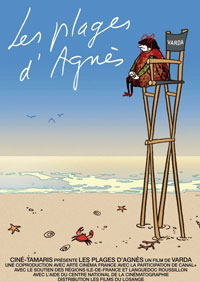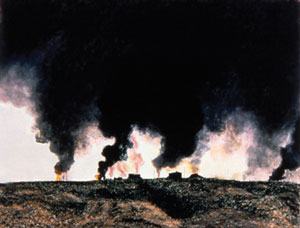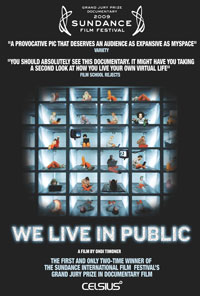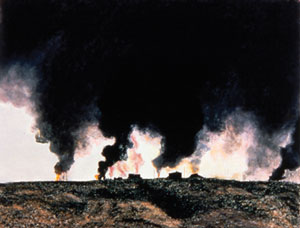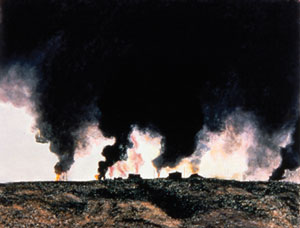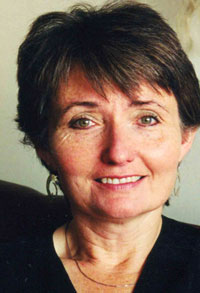Why War?: "Viewing War, Playing War: The Virtualization of Violence"
Abigail De Kosnik is Assistant Professor in the Berkeley Center for New Media (BCNM) and the Department of Theater, Dance, and Performance Studies. Greg Niemeyer is Associate Professor of Art Practice, Film, and the Center for New Media at Berkeley.
“If we opened people up, we’d find landscapes. If you opened me up, you’d find beaches.” So begins Agnes Varda’s engaging self portrait of a life lived in and around the cinema. Less an autobiography than a meditation on time, memory, and place, Varda’s film offers us a glimpse of the complex flow between life and images, forces that shift back and forth with the ceaseless energy of the sea itself.
Why War?: "The Claims of the Dead: Civilian Deaths & American Tactics of War"
Amy Huber is Assistant Professor of Literature at the Gallatin School at New York University. She is also UC Berkeley Post-Doctoral Scholar and Lecturer in Comparative Literature and Critical Theory for Fall 2010. Professor Huber received her doctorate in Rhetoric from the University of California at Berkeley in 2009.
Join the Townsend Center in an informal discussion moderated by Professor Peter Sahlins (History) on open review and online publishing.
Norbert Bilbeny, Philosopher
Known for his essays on moral and political philosophy, Norbert Bilbeny is Professor of Ethics and Director of the M.A. program in Citizenship and Human Rights at the University of Barcelona. His scholarship focuses on ethics, politics, and globalization—most specifically on the topics of intercultural ethics, moral cosmopolitan identity, and global civil society.
Timothy Murray, Society for the Humanities, Cornell University
This lecture traces the history of "anti-commodity" video art (from the 1970s to the 1990s) and links this to the flowering of poststructural philosophy and the rise of open source discourse and computing movements, bringing them altogether with reflections on 'tactical media.'
While the popularity of web sites like Facebook and YouTube allows us to broadcast our lives for the world to see, few people have carried the idea as far as Josh Harris. An internet pioneer, Harris founded Quiet, a project in which 150 people lived together and broadcast their every movement. Shot over a fifteen year period, We Live in Public follows Harris’ rise and fall, from his status as poster child for the dot-com mania of the late 1990s to his eventual retreat from technology altogether.
Why War?: "To Be Beside Oneself: A Phenomenology of Our Own Violence"
Elsa Dorlin is Associate Professor of Philosophy at Panthéon-Sorbonne University (Paris 1). She received her Ph.D in the History of Philosophy from Sorbonne University (Paris 4) in 2004. In 2009, she was awarded the Bronze Medal for research in philosophy by the CNRS (French National Center For Scientific Research). Her main field of research is the relation between body, violence and subjectivity in classical political theory, the historical epistemology of sex and race in medical thought and queer and feminist studies.
Why War?: "Michael Walzer, Carl Schmitt, and the Issue of the 'Just War'"
Etienne Balibar was born in 1942. He graduated at the Sorbonne in Paris, later took his Ph.D. from the University of Nijmegen (Netherlands). He is now Emeritus Professor of Moral and Political Philosophy at the University of Paris 10 Nanterre and Distinguished Professor of Humanities at the University of California, Irvine.
Diana Taylor, Performance Studies and Spanish, NYU
Diana Taylor is professor of Performance Studies and Spanish at New York University. She is also Founding Director of the Hemispheric Institute of Performance and Politics, an organization working at the intersection of scholarship, artistic expression, and politics to explore performance as a vehicle for the creation of new meaning and the transmission of cultural values, memory, and identity.
